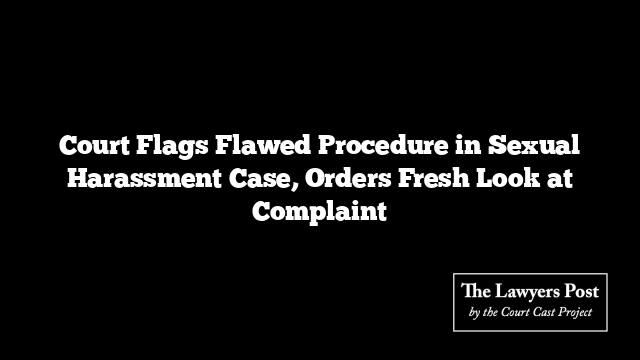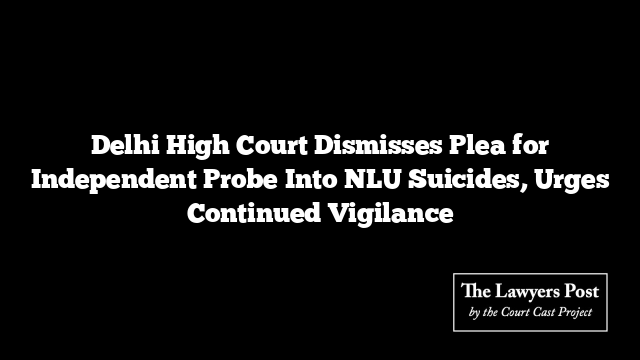The Madhya Pradesh High Court has underscored the mandatory requirement for conciliation attempts under the Sexual Harassment of Women at Workplace (Prevention, Prohibition, and Redressal) Act (POSH) before launching formal inquiries. This observation came during its hearing of a petition challenging the dismissal of an assistant professor from the Maulana Azad National Institute of Technology (MANIT) in Bhopal.
The court found that the institution’s Internal Complaints Committee (ICC) had bypassed the critical step of seeking a resolution through conciliation, as mandated by Section 10 of the POSH Act. Justice Sanjay Dwivedi emphasized that this attempt is not optional but an obligatory first step.
“Conciliation is a prerequisite, and only when it fails should the matter escalate into a formal inquiry under service rules,” the court stated, highlighting procedural lapses in the professor’s case.
Delayed Complaints and Denied Fair Hearing
The case involved allegations by students, which were reported beyond the three-month window specified in Section 9 of the POSH Act. Additionally, the court noted that the professor had been denied fundamental rights to a fair hearing during the inquiry process.
According to the court, the inquiry report failed to indicate whether the complainants were present or available for cross-examination. The professor’s dismissal was based solely on the charges leveled and his written response, without adequate procedural safeguards.
Inquiry Procedures Deemed Invalid
In its judgment, the court unequivocally criticized the inquiry process for ignoring statutory requirements and principles of natural justice. Justice Dwivedi remarked, “From the outset, the prescribed procedures under the POSH Act and service rules were blatantly disregarded, rendering the inquiry findings legally unsustainable.”
The court set aside the dismissal and directed the respondents to address the procedural flaws before pursuing any further action. This ruling underscores the importance of adhering to due process in workplace harassment cases, balancing institutional accountability with the accused’s rights.





